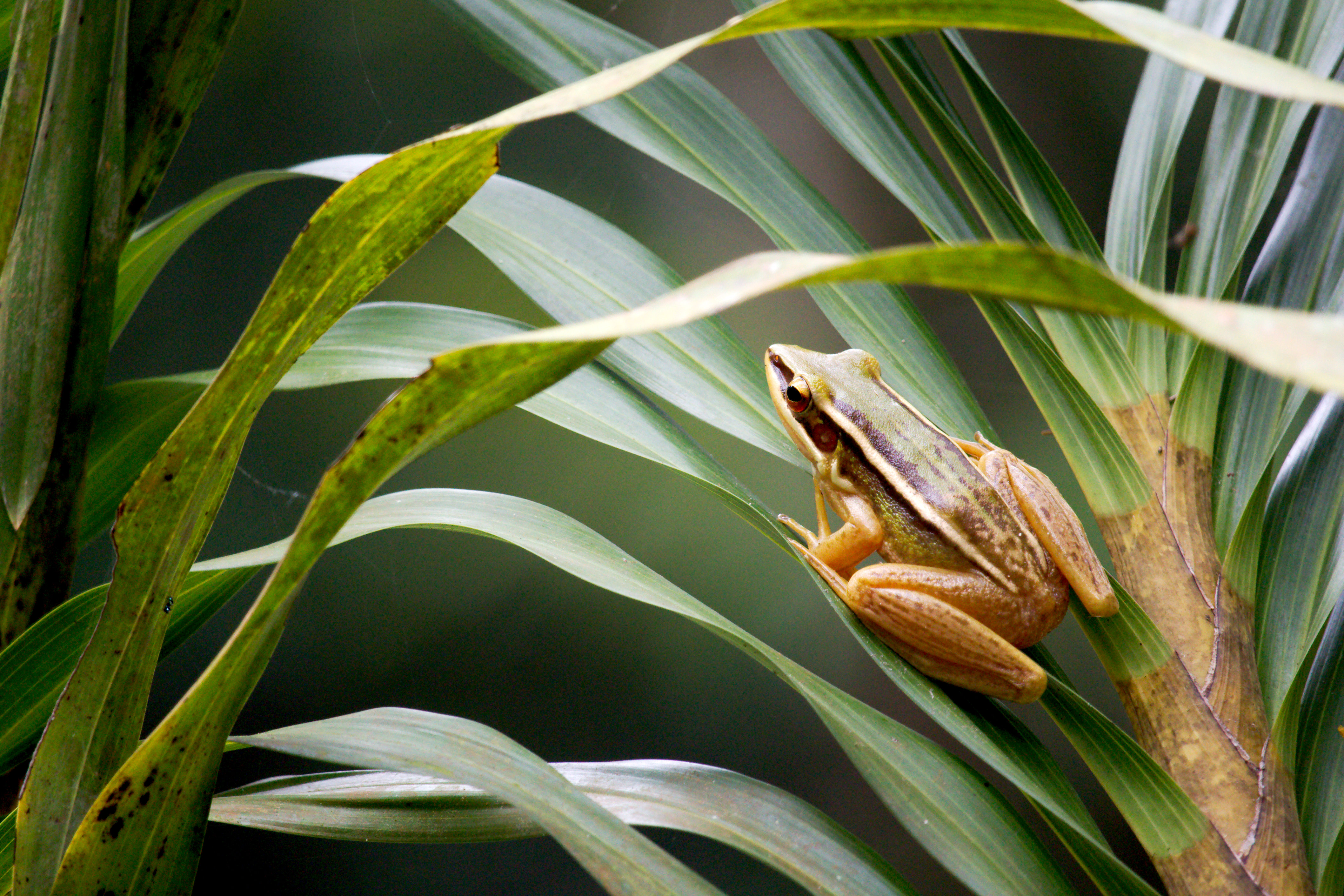We packed our stuff and shifted hostel this morning, moving via a pharmacy to pick up cream and bandages for my foot. I then got a message from Sam, my dive buddy from the Perhentians, letting us know he made it to Penang and was free to hang out. Great!
Without much effort, we located each other, had a momentary man-hug and caught up for a lazy breakfast on Lebuh Chulia. I realised again that it’s a great feeling when you re-find people you’d met earlier on the trip. You’ve already got an experience in common, plus new stories to hear about since you parted, which is nice. Samtastic, even.
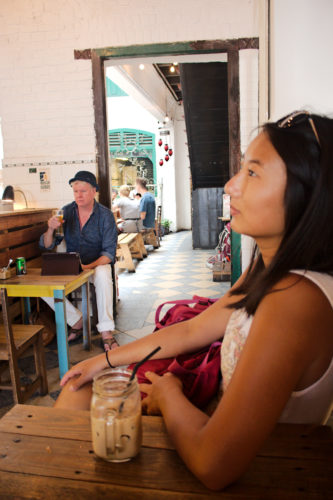
After finishing our coffee we wandered to the bus station and hopped a local bus to Batu Ferringhi. We’d heard there’s a nice beach there.
Arriving about 45 minutes later we stepped out and plodded to the shore, to find a long, beautiful sandy stretch. Although ridden with water sports centres, there are a few spots you can stop and swim, and a good few cafés and restaurants capable of serving some decent food and a cold drink:
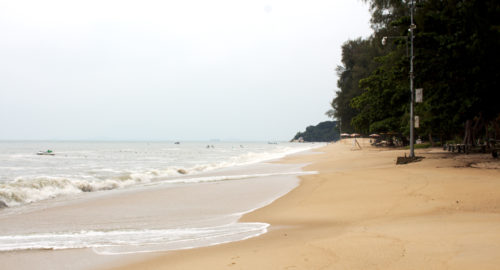
We chilled and swam in the waves for a couple of hours, and then struggled damp and sandy back into our clothes to seek out our destination – the Penang Spice Garden.
I absolutely loved the spice garden from the first moment. Greeted by an assistant who misted us with natural citronella oil (to fend off the mosquitoes) we happened to have arrived right at the start of an English tour. We were told about the various plants in the jungle which possess interesting medicinal and culinary properties. I didn’t stand a chance at recognising or remembering most of them, but it was great to see some familiar items growing in their natural environment:
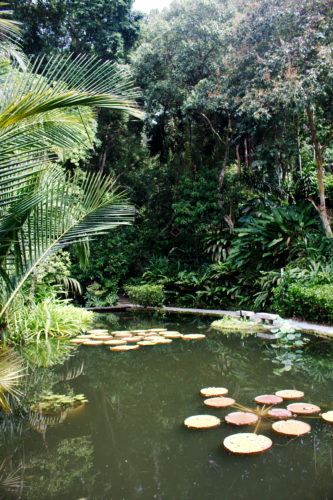
Welcome to the jungle 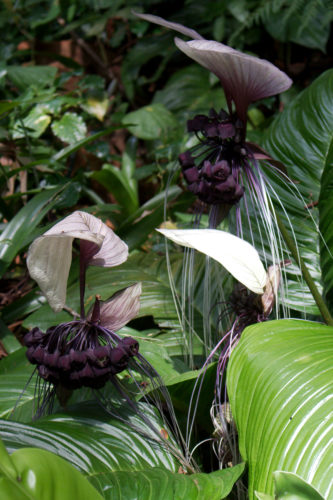
BAT PLANT 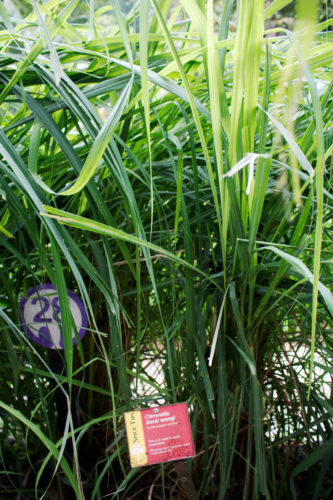
Citronella! Tasty 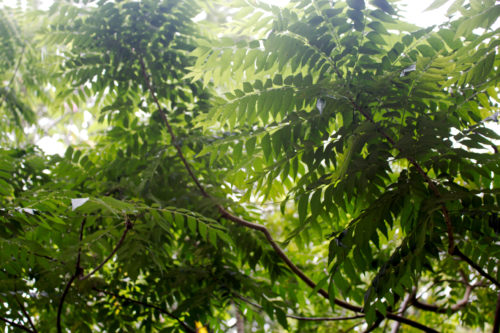
Indian curry tree. I’ll have a chicken tikka please 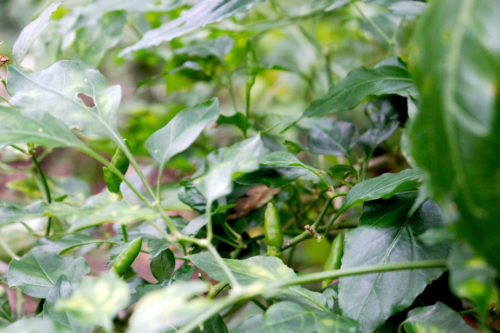
Chili in here, or just me?
We also heard an interesting story about the palm oils that they grow in Malaysia. Although controversial due to the vast amounts of deforestation taking place, the country has to grow. Palm is several times more efficient than nuts for growing oil, as well as producing two grades, low and high, which are good for cooking and medicine respectively. So although an evil, the residents of Malaysia feel that at the moment there is little else they can do to generate sufficient income to feed their growing population. For Malaysia, it’s certainly more efficient to grow palm and sell oil in exchange for rice (from China) than it is to deforest the country and plant rice directly instead. Working with the WWF, businesses like the Penang Spice Garden educate and encourage locals to keep natural rainforests preserved in areas where rare plants and endangered animals live. Who knows how far this is true, but if they’re saying they do it, at least there’s an awareness that it’s a good thing to do.
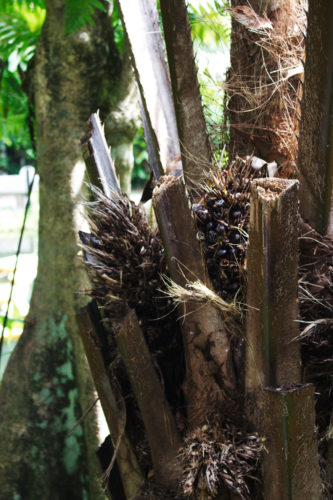
Palm oil – good, bad? 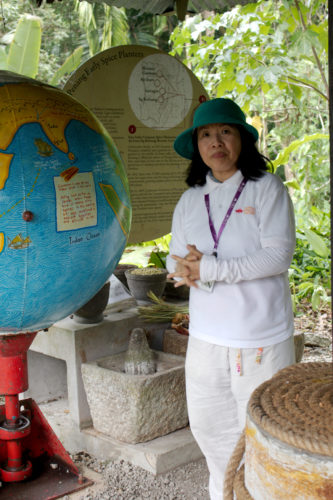
Better than the Lonely Planet 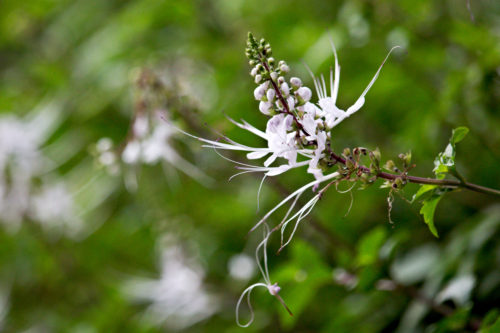
No idea what this is 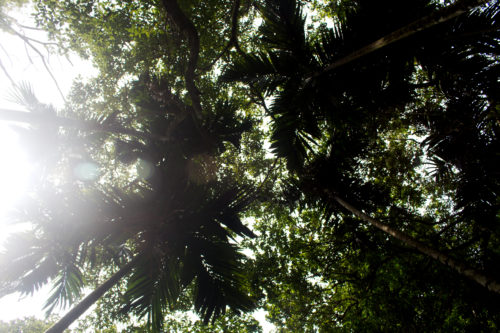
Canapés 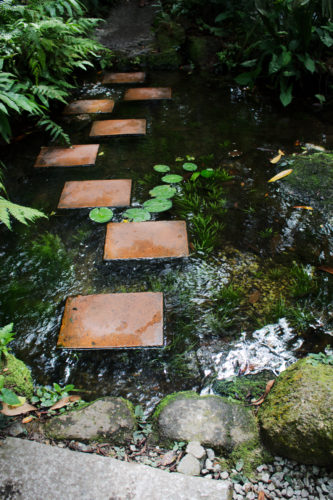
As treacherous and beautiful as the jungle itself
It was a great afternoon, but as the heat dwindled and our stomachs started rumbling, Penang and its street-bound delicacies were calling for us to experience their Asian goodness, and we eagerly obliged. Starved after a day of wandering the shoreline, we worked our way through curried chicken, things on sticks, fruits, noodles, rice, soups and curries. I said “yes” to every kind of food available at practically every stand we passed, while Sam obliterated the West-East cultural border with his innovative use of the spoon and chopsticks:
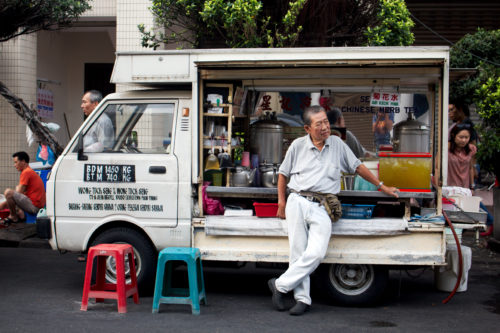
Buymyafood 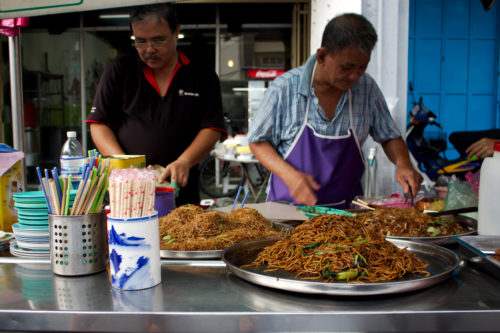
Yes I will everything thanks. 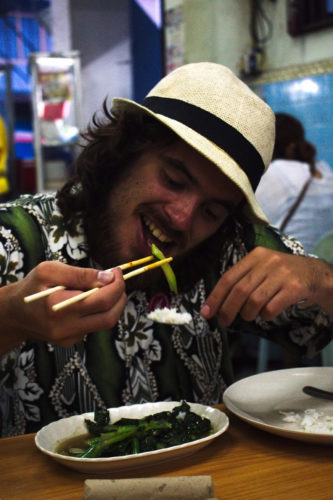
EAST vs WEST 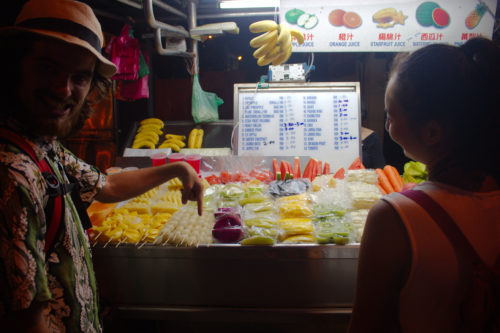
Fruit on a stick in a bag! 
Satisfied. 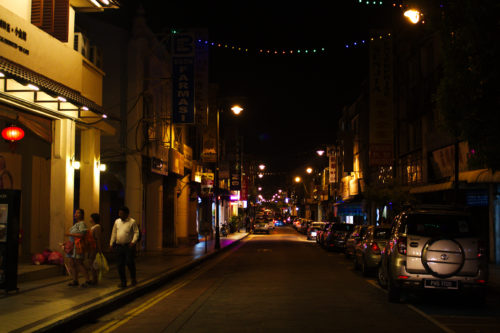
So street.
The food here is sensational – at one moment I considered dumping all my stuff and filling my rucksack with noodles. But then sanity kicked in, and I just got a good night’s sleep and looked forward to the next day instead.
